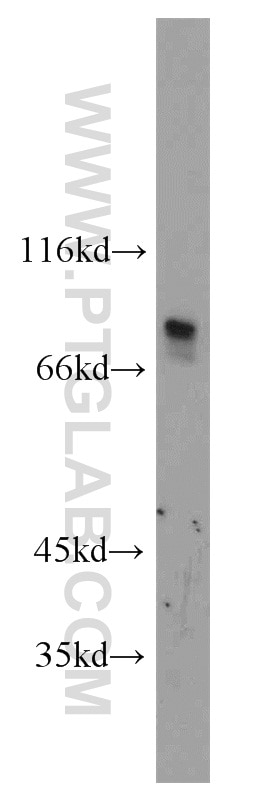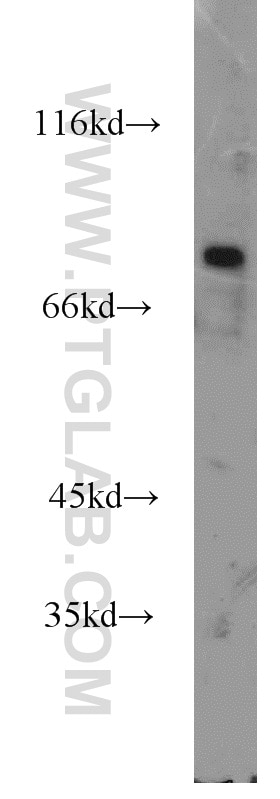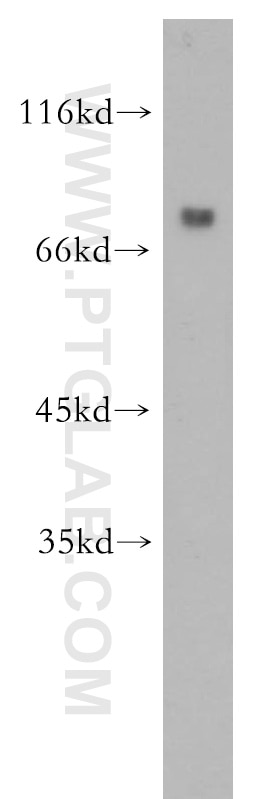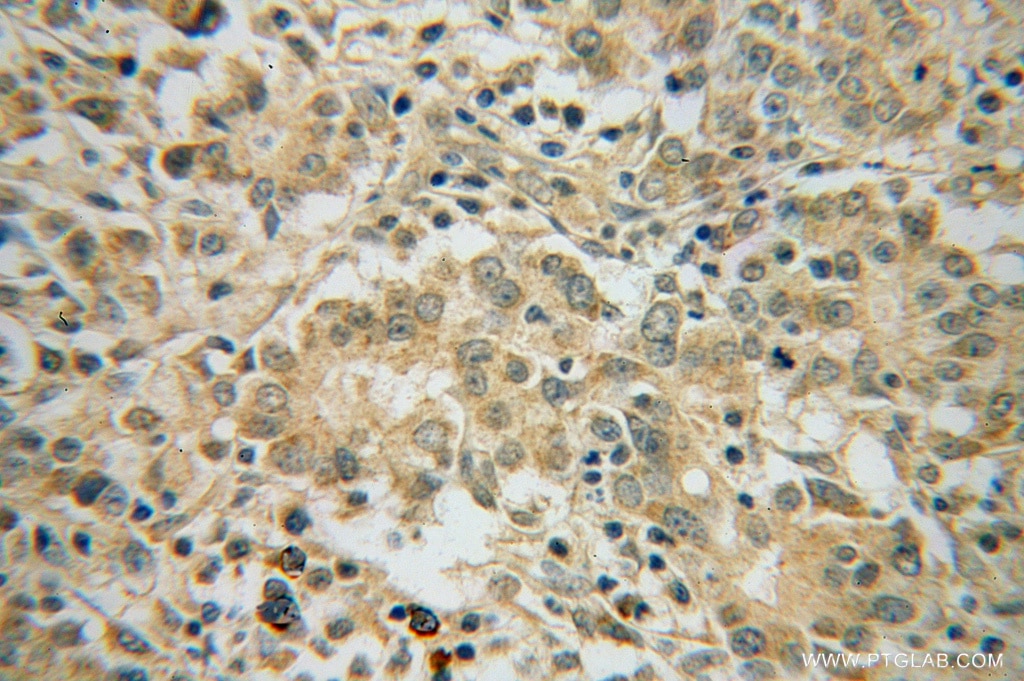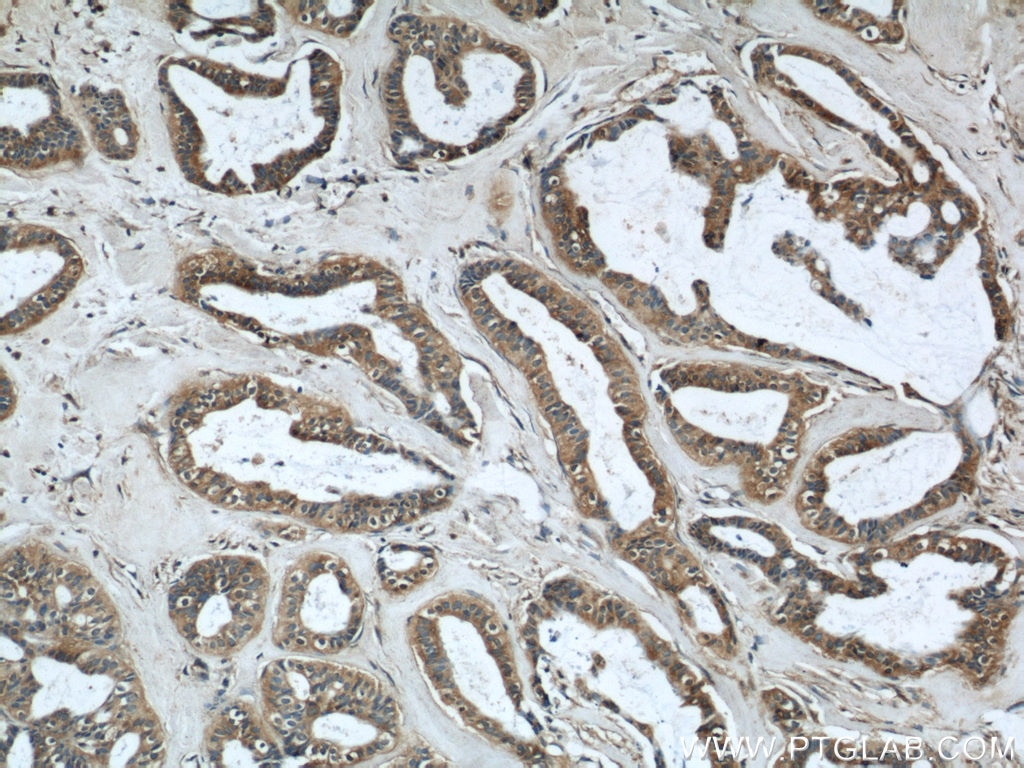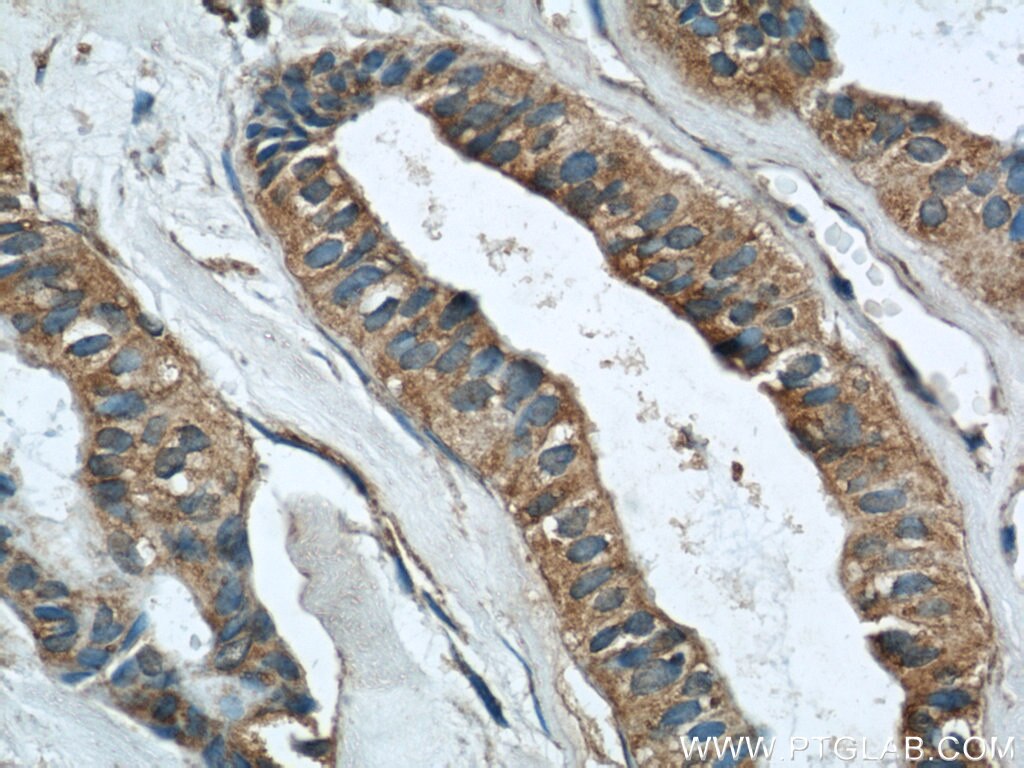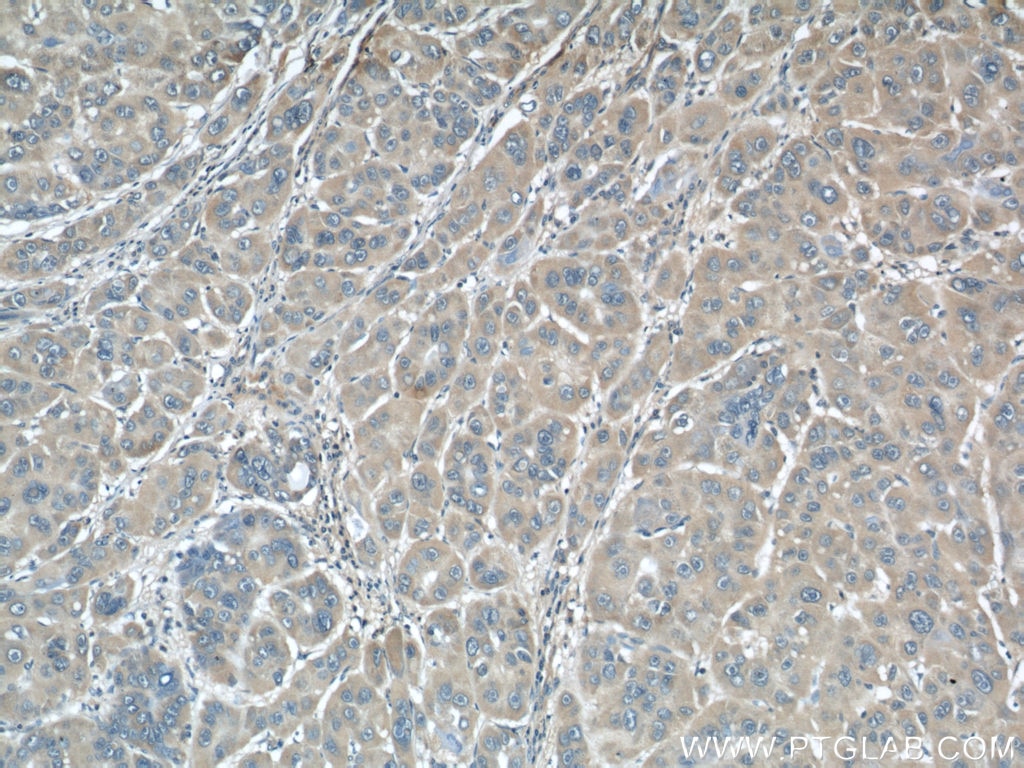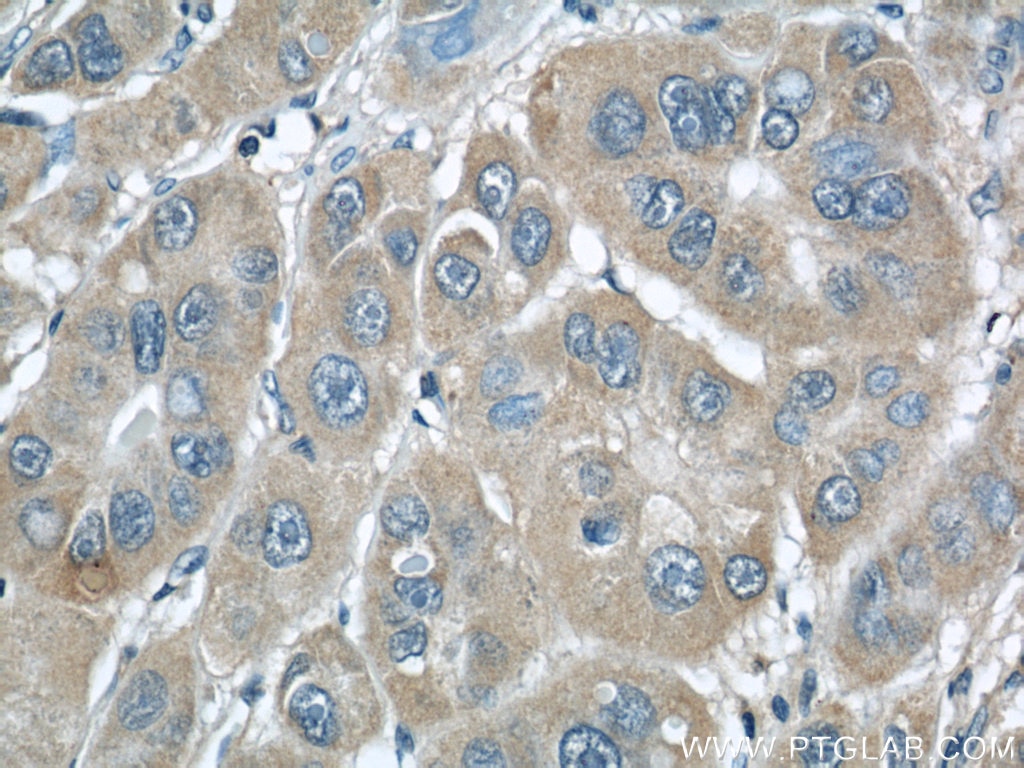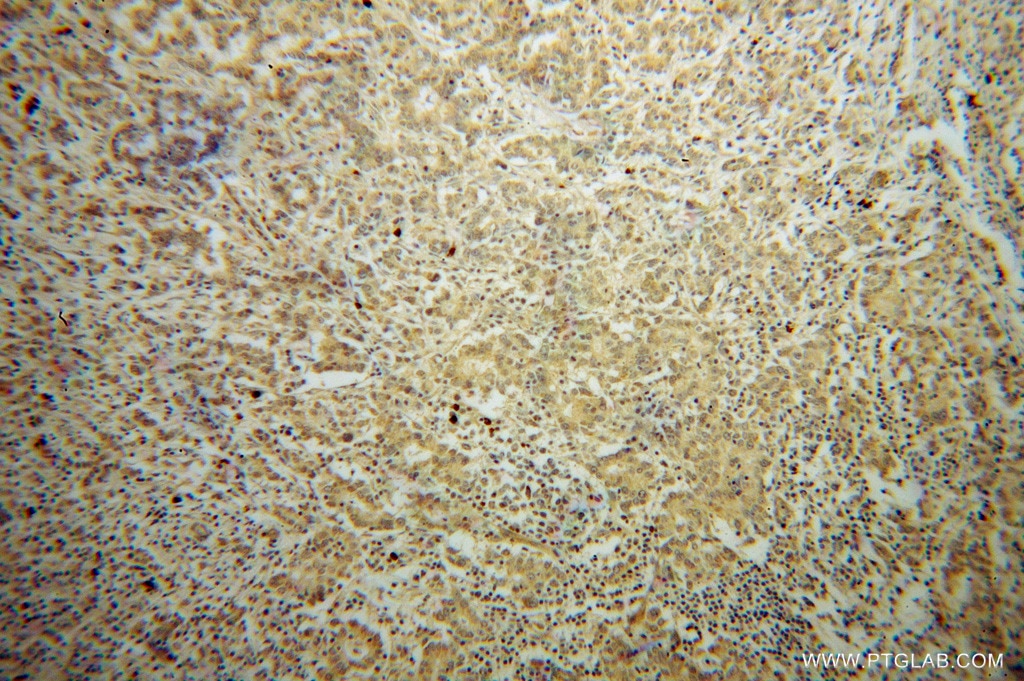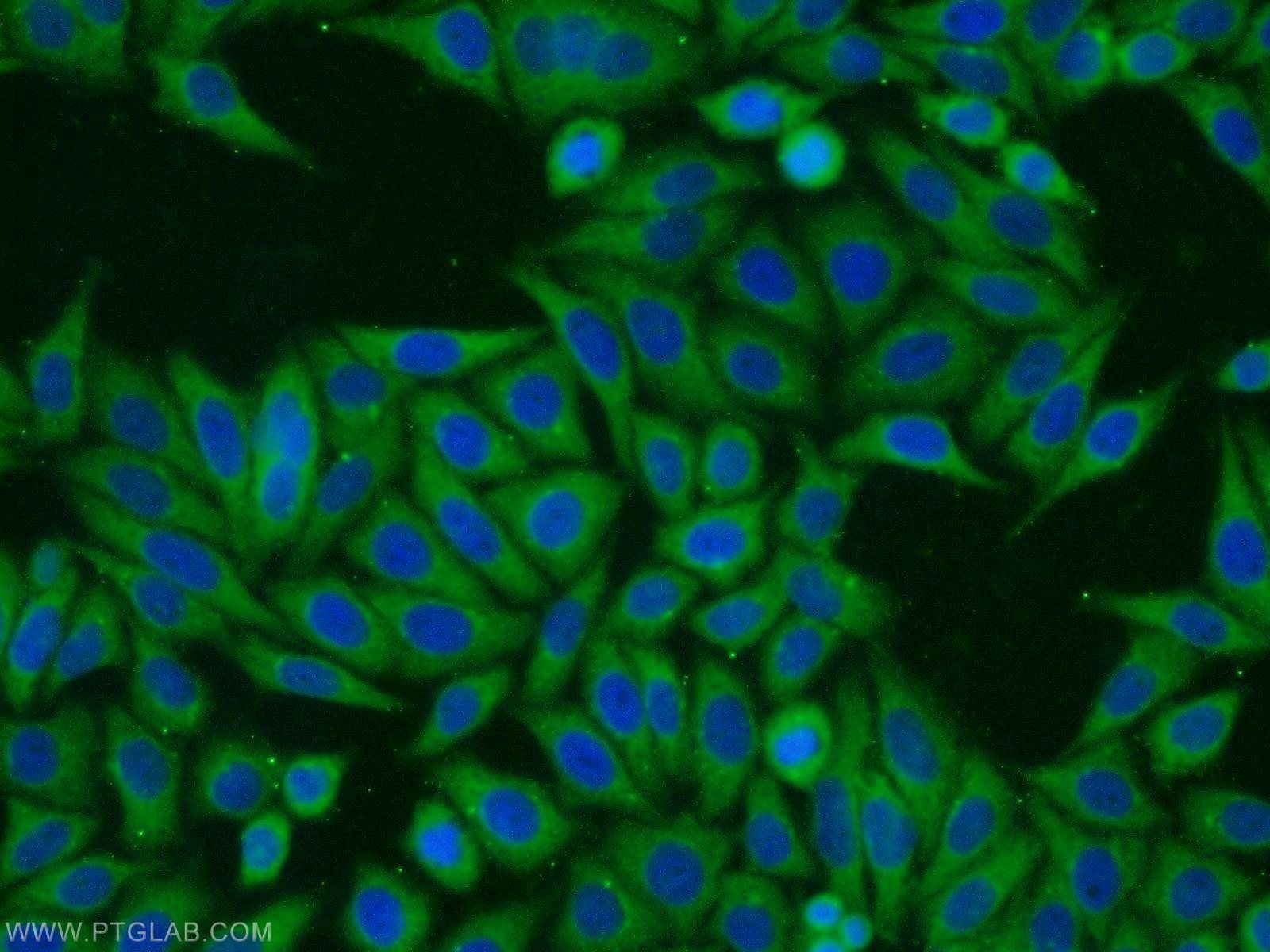Tested Applications
| Positive WB detected in | HepG2 cells |
| Positive IHC detected in | human breast cancer tissue, human liver cancer tissue Note: suggested antigen retrieval with TE buffer pH 9.0; (*) Alternatively, antigen retrieval may be performed with citrate buffer pH 6.0 |
| Positive IF/ICC detected in | HepG2 cells |
Recommended dilution
| Application | Dilution |
|---|---|
| Western Blot (WB) | WB : 1:200-1:1000 |
| Immunohistochemistry (IHC) | IHC : 1:20-1:200 |
| Immunofluorescence (IF)/ICC | IF/ICC : 1:10-1:100 |
| It is recommended that this reagent should be titrated in each testing system to obtain optimal results. | |
| Sample-dependent, Check data in validation data gallery. | |
Published Applications
| WB | See 1 publications below |
| IF | See 1 publications below |
Product Information
14567-1-AP targets RINT1 in WB, IHC, IF/ICC, ELISA applications and shows reactivity with human, mouse, rat samples.
| Tested Reactivity | human, mouse, rat |
| Cited Reactivity | human |
| Host / Isotype | Rabbit / IgG |
| Class | Polyclonal |
| Type | Antibody |
| Immunogen | RINT1 fusion protein Ag6145 Predict reactive species |
| Full Name | RAD50 interactor 1 |
| Calculated Molecular Weight | 91 kDa |
| Observed Molecular Weight | 87 kDa |
| GenBank Accession Number | BC068483 |
| Gene Symbol | RINT1 |
| Gene ID (NCBI) | 60561 |
| RRID | AB_2269421 |
| Conjugate | Unconjugated |
| Form | Liquid |
| Purification Method | Antigen affinity purification |
| UNIPROT ID | Q6NUQ1 |
| Storage Buffer | PBS with 0.02% sodium azide and 50% glycerol , pH 7.3 |
| Storage Conditions | Store at -20°C. Stable for one year after shipment. Aliquoting is unnecessary for -20oC storage. 20ul sizes contain 0.1% BSA. |
Background Information
RINT-1 was first identified as a Rad50-interacting protein that participates in radiation-induced G2/M checkpoint control. It also involved in regulation of membrane traffic between the endoplasmic reticulum and the Golgi. It interacts with p130, an Rb family protein, and together they regulate the telomerase-independent telomere length. Otherwise, it interacts with Zeste white 10 with its N-terminal region throughout the cell cycle.
Protocols
| Product Specific Protocols | |
|---|---|
| WB protocol for RINT1 antibody 14567-1-AP | Download protocol |
| IHC protocol for RINT1 antibody 14567-1-AP | Download protocol |
| IF protocol for RINT1 antibody 14567-1-AP | Download protocol |
| Standard Protocols | |
|---|---|
| Click here to view our Standard Protocols |
Publications
| Species | Application | Title |
|---|---|---|
J Biol Chem Comparative proximity biotinylation implicates the small GTPase RAB18 in sterol mobilization and biosynthesis | ||
Front Immunol Circular RNA TAF4B targeting MFN2 accelerates cell growth in bladder cancer through p27 depression and AKT activation |
